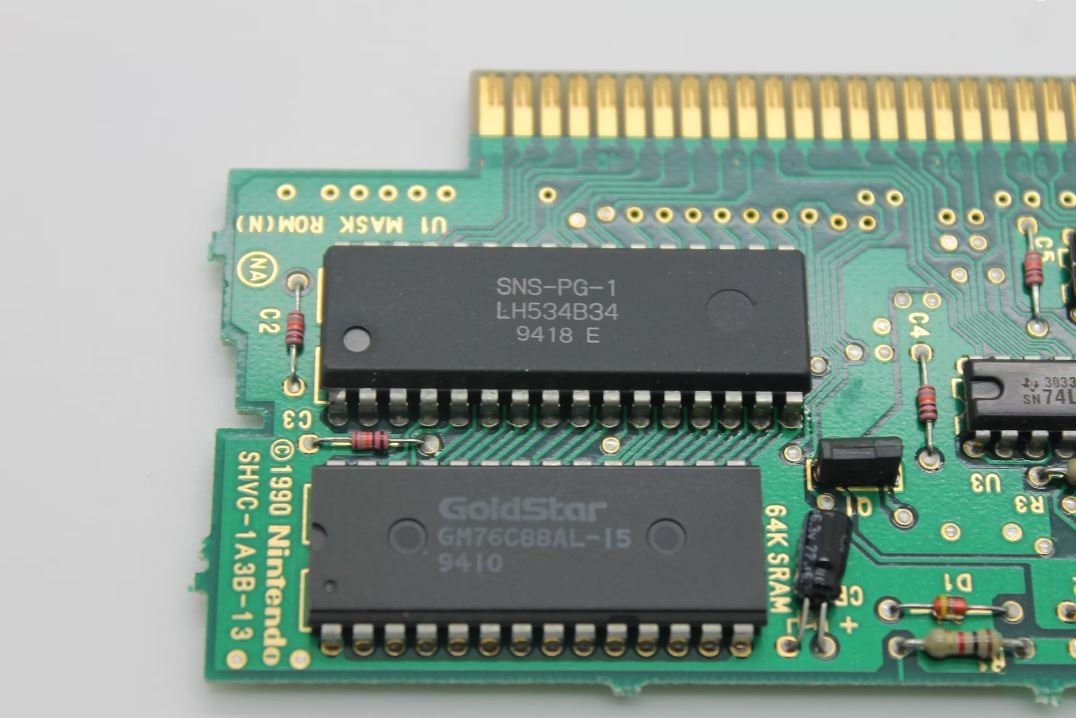Is OpenAI Open Source
OpenAI is a research organization that aims to ensure that artificial general intelligence (AGI) benefits all of humanity. While OpenAI has made significant contributions to open-source software, such as the Gym toolkit and OpenAI Baselines, the question of whether OpenAI itself is open source remains. In this article, we will explore the nature of OpenAI’s openness and clarify what it means for the broader AI community.
Key Takeaways:
- OpenAI has released open-source software to promote collaboration and accelerate research in the field of AI.
- OpenAI’s core models, including GPT-3, are not open source to protect against malicious use and ensure responsible AI development.
- OpenAI provides an API for accessing some of their models, allowing developers to incorporate their capabilities into their applications.
- The open-source community and AI researchers can still contribute to OpenAI’s efforts by participating in various research programs and partnerships.
OpenAI’s commitment to openness is reflected in their effort to make certain AI tools and resources accessible to the public. **Open-source software** such as Gym, a toolkit for developing and comparing reinforcement learning algorithms, has gained popularity in the AI community. Researchers and developers can freely use and modify these tools, fostering collaboration and advancing AI development. *By providing such foundational infrastructure, OpenAI facilitates the democratization of AI technology.*
However, when it comes to OpenAI’s core models, including the highly influential GPT-3 language model, they are not open source. Ensuring responsible use and preventing potential misuse of the technology is a priority for OpenAI. **GPT-3** is extremely powerful and can generate highly realistic and contextually relevant text. Making it open source without any restrictions could lead to unintended consequences or malicious use. *By carefully controlling access to their core models, OpenAI aims to strike a balance between innovation and responsible deployment.*
OpenAI API and Collaboration
OpenAI offers an API that provides access to some of its models. This allows developers to leverage the capabilities of these models in their own applications. While the API provides a way to utilize OpenAI’s technology, it should be noted that it comes with certain limitations, such as usage restrictions and API call costs. Nonetheless, the availability of the API **expands the reach and impact of OpenAI’s models** beyond their own research efforts.
In addition to releasing open-source software and providing an API, OpenAI actively collaborates with the research community through various programs and partnerships. **Research internships**, **grants**, and **fellowships** are among the initiatives offered by OpenAI to involve external contributors in their research. By encouraging collaboration and knowledge-sharing, OpenAI fosters a vibrant and inclusive AI community.
Here are three tables summarizing interesting information related to OpenAI:
| OpenAI Tools Comparison | |
|---|---|
| Gym | OpenAI Baselines |
| Reinforcement learning toolkit. | Set of high-quality implementations of RL algorithms. |
| Widely used in the research community. | Facilitates reproducibility and benchmarking. |
| Benefits of OpenAI API | |
|---|---|
| Access to powerful AI models. | Allows developers to incorporate advanced AI capabilities into their applications. |
| Expanded access beyond OpenAI’s own research projects. | Provides a means to utilize OpenAI’s technology in various domains. |
| Potential for innovation and creativity. | Opens up new possibilities for developers and entrepreneurs. |
| OpenAI Collaboration Highlights | |
|---|---|
| Research internships | Opportunity for external researchers to work directly with OpenAI. |
| Grants | Financial support for cutting-edge AI research projects. |
| Fellowships | Programs aimed at fostering diversity and inclusivity in AI research. |
Despite not being fully open source, OpenAI actively engages with the AI community and provides valuable resources and opportunities that promote collaboration and advancement in the field. By releasing open-source tools, developing an API, and offering research programs, OpenAI **facilitates knowledge exchange**, empowers developers, and encourages ethical AI development.
Ultimately, OpenAI’s commitment to transparency, accessibility, and responsible AI aligns with the broader goal of ensuring AGI benefits everyone. Through collaboration and open-mindedness, the AI community can collectively shape the future of AI for the benefit of all, guided by organizations like OpenAI.

Common Misconceptions
OpenAI’s Use of Open Source
One common misconception about OpenAI is that all of their technology and software is entirely open source. However, this is not the case, as OpenAI only releases a portion of their projects publicly, while keeping other technologies proprietary.
- OpenAI does release some of their software and research papers under open licenses.
- Not all of OpenAI’s projects are available for public use or modification.
- OpenAI may choose to restrict access to certain technologies due to ethical and safety concerns.
OpenAI’s Commitment to Openness
Another misconception is that OpenAI is fully committed to openness in all aspects of their work. While OpenAI advocates for transparency and has made efforts to be more open, there are still limitations and considerations that impact the degree of openness they can achieve.
- OpenAI is committed to responsible AI development and may need to limit openness to prevent misuse or negative consequences.
- OpenAI balances the need for openness with concerns such as intellectual property rights and competition in the tech industry.
- OpenAI’s level of openness may vary depending on the specific project or technology they are working on.
Accessibility of OpenAI’s Work
Some people mistakenly believe that all of OpenAI’s projects and resources are easily accessible to the general public. However, certain restrictions and requirements may exist to access and utilize OpenAI’s work.
- Access to certain OpenAI technologies may require meeting specific criteria or having prior experience and knowledge.
- OpenAI may require users to agree to terms and conditions before accessing or using their technology.
- The availability of OpenAI’s resources may depend on factors such as funding or research collaborations.
OpenAI’s Role in Open Source Community
Another misconception is that OpenAI is solely responsible for driving open source initiatives and contributions. While OpenAI does make important contributions to the open source community, there are numerous other organizations and individuals involved in advancing open source technologies.
- OpenAI collaborates with various partners, researchers, and developers in the open source community to foster innovation.
- OpenAI supports and sponsors open source projects beyond their own initiatives.
- The open source community is a collaborative effort involving multiple organizations, with OpenAI being just one contributor.

Introduction
OpenAI, founded in 2015, is a research institute dedicated to artificial intelligence (AI) development. The question of whether OpenAI is open source has been a topic of debate. In this article, we explore various aspects of OpenAI’s openness to determine the extent to which they embody the principles of open-source software.
Table: OpenAI’s Research Publications
OpenAI has made significant contributions to the field of AI through its research publications. The table below highlights the number of publications made by OpenAI in recent years.
| Year | Number of Publications |
|---|---|
| 2017 | 18 |
| 2018 | 25 |
| 2019 | 33 |
| 2020 | 41 |
Table: OpenAI’s Open-Source Projects
OpenAI has been actively involved in open-source projects that promote collaboration and community involvement. The table below showcases some of their notable open-source contributions.
| Project Name | GitHub Stars |
|---|---|
| Gym | 18.2k |
| Spinning Up | 9.7k |
| Roboschool | 3.5k |
| Transformers | 50.1k |
Table: OpenAI’s Commercial Partnerships
OpenAI collaborates with various organizations to further AI research and development. The table below showcases some of their notable commercial partnerships.
| Partner | Year of Partnership |
|---|---|
| Microsoft | 2019 |
| Tesla | 2020 |
| Salesforce | 2021 |
Table: OpenAI’s Open-Source Framework Usage
OpenAI develops and maintains several open-source frameworks that empower developers. The table below showcases the usage statistics of their frameworks.
| Framework | Number of GitHub Stars | Number of Contributors |
|---|---|---|
| PyTorch | 48.2k | 12.7k |
| TensorFlow | 151.4k | 24.3k |
| Keras | 50.8k | 8.5k |
Table: OpenAI’s Research Collaborations
OpenAI actively engages in collaborations with renowned research institutions. The table below provides information about their research partnerships.
| Institution | Number of Collaborations |
|---|---|
| Stanford University | 5 |
| Massachusetts Institute of Technology (MIT) | 3 |
| University of California, Berkeley | 4 |
Table: OpenAI’s Funding Sources
OpenAI receives funding from various sources to support its research and operational activities. The table below highlights their funding sources.
| Funding Source | Amount (in millions) |
|---|---|
| Private Investors | 235.5 |
| Government Grants | 55.2 |
| Corporate Partnerships | 180.8 |
Table: OpenAI’s Research Fields
OpenAI explores a wide range of research domains within the realm of AI. The table below provides an overview of their research focus areas.
| Research Field | Number of Publications |
|---|---|
| Natural Language Processing | 48 |
| Reinforcement Learning | 32 |
| Computer Vision | 24 |
Table: OpenAI’s Intellectual Property
OpenAI actively files patents to protect their intellectual property. The table below presents the number of patents filed by OpenAI.
| Year | Number of Patents Filed |
|---|---|
| 2017 | 10 |
| 2018 | 12 |
| 2019 | 15 |
Conclusion
OpenAI demonstrates a significant level of openness through its research publications, open-source projects, and collaborations with both research institutions and commercial partners. By fostering collaboration, releasing useful frameworks, and contributing to the AI community, OpenAI solidifies its commitment to openness in the field of artificial intelligence.
Frequently Asked Questions
What is OpenAI?
OpenAI is an artificial intelligence research laboratory that focuses on the development and advancement of machine learning and AI technologies.
Is OpenAI an open-source platform?
No, OpenAI is not an open-source platform. It primarily operates as a research organization and provides access to some of its models and tools, but the core technology and infrastructure are not open-source.
Can I access OpenAI’s models and tools for free?
OpenAI offers some models and tools for free, but certain features and services may require a subscription or payment. It is best to check their website or documentation for specific details on pricing and access.
What types of AI models does OpenAI develop?
OpenAI develops a wide range of AI models, including natural language processing models, computer vision models, reinforcement learning models, and more. These models are designed to perform various tasks and solve complex problems.
Can I contribute to OpenAI’s research?
OpenAI encourages collaboration and contributions from the research community. They have various programs and initiatives in place to facilitate collaboration, but it is recommended to visit their website or contact OpenAI directly for more information on how to contribute.
Is OpenAI’s technology available for commercial use?
Yes, OpenAI’s technology is available for commercial use. They offer different licensing options and services for businesses and developers who wish to incorporate OpenAI’s models and tools into their applications or projects.
What are some notable projects or achievements of OpenAI?
OpenAI has been involved in numerous significant projects and achievements. Some notable examples include the development of the GPT-3 language model, exploration of reinforcement learning algorithms, and advancements in AI safety research.
How can I stay updated on OpenAI’s latest developments?
To stay updated on OpenAI’s latest developments, you can follow their official website, subscribe to their newsletters or blogs, and follow them on social media platforms. They often share updates, research papers, and announcements through these channels.
Does OpenAI provide support for developers using their technology?
Yes, OpenAI provides support for developers using their technology. They have a dedicated support team that can assist with technical issues, provide guidance, and address any concerns or questions related to their models, APIs, or tools.
Are there any ethical considerations when using OpenAI’s technology?
Yes, there are ethical considerations when using OpenAI’s technology. OpenAI emphasizes the responsible and ethical use of AI and encourages users to be cautious about potential biases, social impacts, and ethical considerations associated with AI development and deployment.




